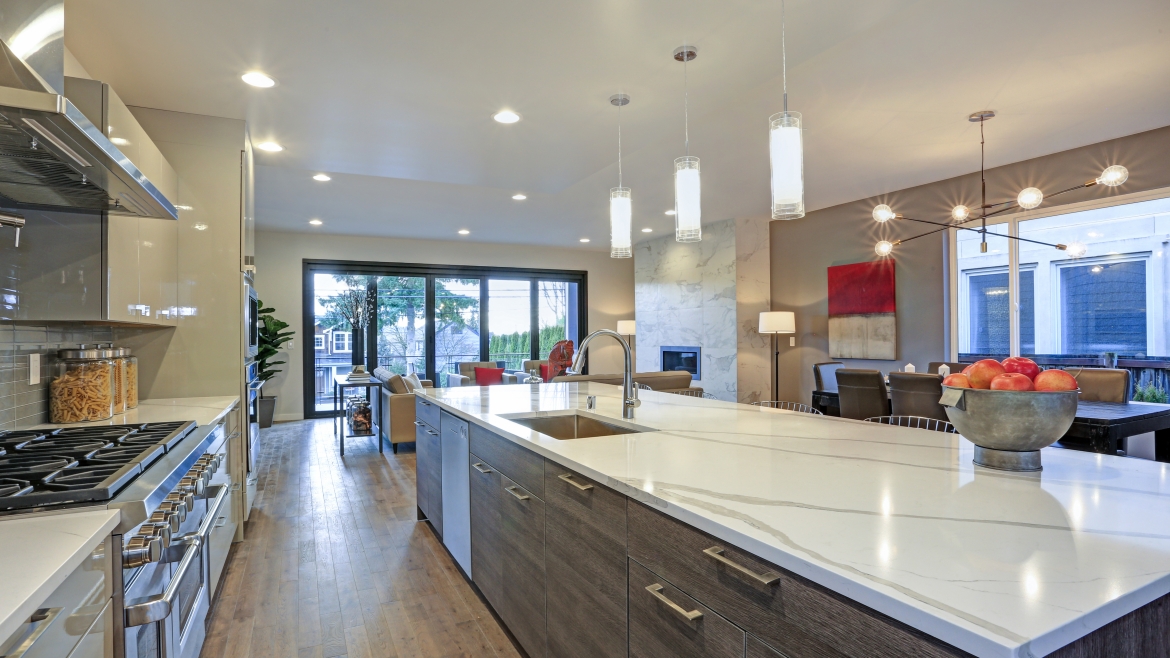Chances are, if you’ve ever researched natural stone, you’ve come across granite, marble, and quartz countertops. But have you yet discovered the option of quartzite? The main difference between quartzite and quartz lies within the method of production. Unlike traditional quartz stone, quartzite is produced using natural stone material versus engineered.
In this article, we’re looking at the similarities and differences between quartzite and quartz countertops.
Manufacturing
As mentioned, quartzite is naturally mined where quartz is engineered. However, quartz countertops contain the same crystals found within a quartzite slab but include more elements. Incorporating items such as glass and pigments allows for a broader scope of customization. If you desire a unified look, quartz is the best bet.
However, the naturally mined slabs of quartzite allow for a greater level of precision in cutting. Therefore, if your next countertop project requires irregular shapes or highly customized angles, you may want to consider quartzite.
Hardness and Durability
While the two are similar, quartzite is less dense than quartz. However, either option provides superior durability and hardness, making it a fierce competitor to the highly requested granite countertop. If you’re looking to upgrade a high-traffic area, such as a kitchen or restaurant bar top, quartz provides the most significant hardness and durability levels.
Nearly indestructible, quartz is resistant to scratches, chips, and cracking. During manufacturing, the binding process allows this stone to become airtight – providing a nonporous, foolproof surface that is free from bacteria absorption.
Maintenance
Unlike other types of natural stones, quartz countertops require very little maintenance. With warm, soapy water, your countertops will have the streak-free sparkle they did on the day they were installed. But that’s not all. By opting for quartz counters, you’re eliminating the need for future sealing.
On the other hand, quartzite is porous—not extremely porous, but enough so that resealing is required. Without upkeep, a quartzite countertop becomes susceptible to staining and damage. Beyond food and drink, this stone, when unprotected, may also deteriorate with the use of harsh chemical cleaners.
Quartz Countertops from Spencer Granite
Now that you’re in the know about quartzite and quartz countertops, the choice is yours! However, it’s important to remember that our team at Spencer Granite is here to help! Whether you’re remodeling a residential kitchen or a commercial restaurant, we have the expertise and experience to help you make the best choice for your home.

